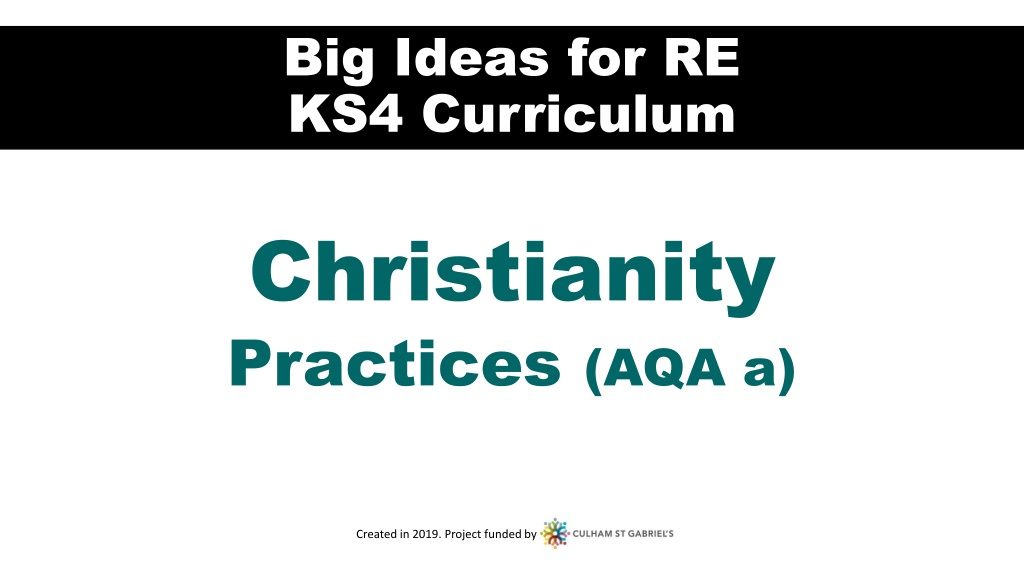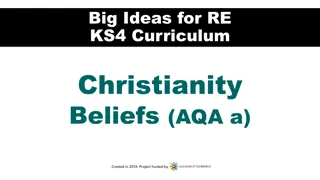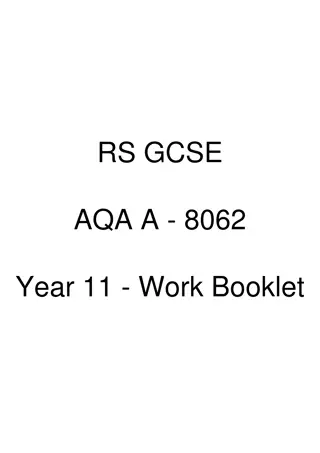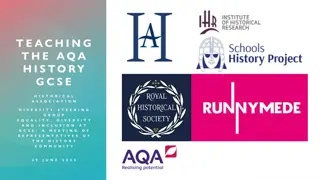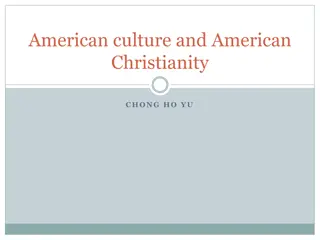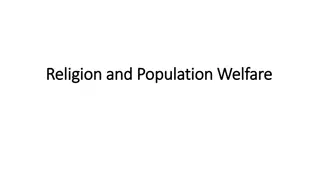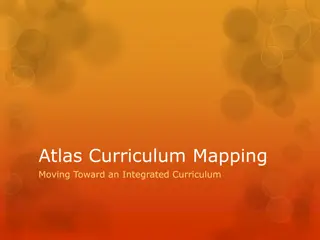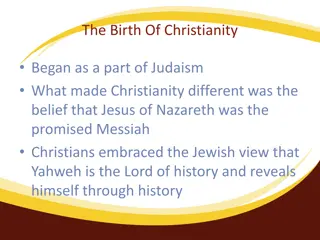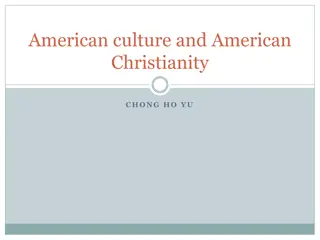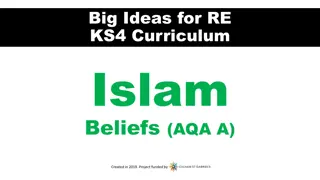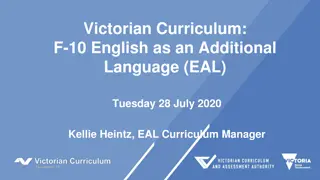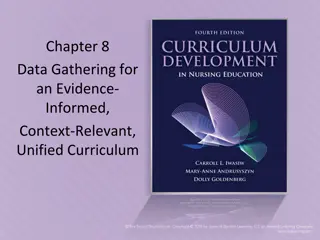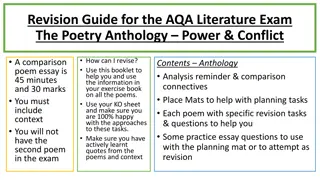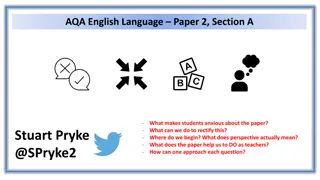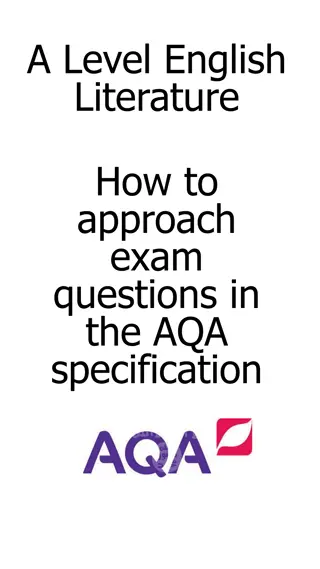Christianity Practices in AQA Curriculum: Key Concepts and Learning Objectives
Explore the essential aspects of Christianity practices in the AQA RE KS4 curriculum, focusing on worship, festivals, beliefs, diversity, context, ethics, and philosophy. Delve into the significance of different forms of worship, sacraments like Baptism and Eucharist, the role of the Church in evangelism, and the ethical dimensions of religious teachings.
Download Presentation

Please find below an Image/Link to download the presentation.
The content on the website is provided AS IS for your information and personal use only. It may not be sold, licensed, or shared on other websites without obtaining consent from the author. Download presentation by click this link. If you encounter any issues during the download, it is possible that the publisher has removed the file from their server.
E N D
Presentation Transcript
Big Ideas for RE KS4 Curriculum Christianity Practices (AQA a) Created in 2019. Project funded by
AQA a: CHRISTIANITY, PRACTICES AQA a: CHRISTIANITY, PRACTICES Worship and festivals Different forms of worship and their significance: liturgical, non-liturgical and informal, including the use of the Bible private worship. Prayer and its significance, including the Lord s Prayer, set prayers and informal prayer. Role and meaning of the sacraments: meaning of sacrament Baptism: significance for Christians; infant and believers baptism; different beliefs about infant baptism Eucharist: significance for Christians, including different ways in which it is celebrated and different interpretations of its meaning. The role and importance of pilgrimage & celebrations including: contrast pilgrimages of Lourdes and Iona Christmas & Easter; importance for UK Christians - Role of local church including food banks and street pastors -Place of mission, evangelism and Church growth. - Worldwide Church including: working for reconciliation Christian churches response to persecution work of one of the following: CAFOD, Christian Aid, Tearfund.
BELIEFS Religion has beliefs At the heart of each religion is a particular set of beliefs. These beliefs, some of which are shared with other religions, offer a particular vision of the universe, humanity, meaning and truth. Beliefs about the nature of reality underpin religious ritual and expression. DIVERSITY Religion is diverse Within each religion's internal landscape of belief there is variation and sometimes dissent or disagreement. Key religious concepts can be understood in diverse ways. Differences in outlook shape practice and expression. Different groups might be associated with particular times or places. CONTEXT Religious beliefs and practices have a context Every modern religion can be understood as the result of political, social, economic or existential pressures that have occurred throughout its history. Understanding such pressures can enhance understanding of the religion. The development of a religion can be seen through large-scale movements or the influence of figures and groups throughout its history; modern religious forms can be understood as contingent on these pressures and individuals. ETHICS Religion has an ethical dimension Each religion offers ethical principles regarding social, practical and spiritual matters. Some religious ethical principles apply within the logic of the religion only, while others apply to human societies more widely. Religion is one form, but not the only form, of ethical guidance. Aspects of religion can raise ethical questions, such as regarding equality and power. PHILOSOPHY Religion raises philosophical questions Each religion provides answers to questions of ultimate meaning. Religious answers to such questions are part, but not all, of the ways these questions might be answered. Some answers offered from within religion raise further questions, such as regards authority or reliability.
KS4: AQA A Christianity: Practices KEY QUESTION AND CONTENT BIG IDEAS LEARNING 1-2: What is church for? Evangelism Work of the church 3-4: Why follow ancient rituals today? Sacraments- definition and purpose Focus: baptism and Eucharist CONTEXT: Jesus Great Commission CONTEXT: diverse work of the church as forms of evangelism- discuss BELIEFS: Christian duty to evangelise BELIEFS: recap nature of Christian God, link to purpose of sacrament CONTEXT: history of baptism, different views of baptism. Reformation-era conflict over Eucharist DIVERSITY: different Christian views on baptism and eucharist BELIEFS: purpose of worship and prayer DIVERSITY: different types of worship and prayer 5-6: Worship and prayer: does it matter what type? Nature and purpose of worship and prayer Types of worship and prayer 7-8: If God is everywhere, why go on pilgrimage? Christian pilgrimage destinations Purpose of pilgrimage 9-10: Easter and Christmas: is there a true meaning ? Purpose, events and symbolism of Easter and Christmas festivals CONTEXT: historical/ spiritual significance of Christian sites of pilgrimage DIVERSITY: different pilgrimage destinations associated With different denominations CONTEXT: Christian settlers added Easter and Christmas to already existing midwinter and spring festivals. BELIEFS: recap significance of evangelism, link to spread of Christianity BELIEFS: purpose, events and symbolism of Christmas and Easter festivals in the Christian year a) Recap/ revision of key words and concepts b) 12 mark question: salvation. Create as a class. Write up for HW. 11-12: Quiz/ exam Ancient religious practices cannot be changed . Discuss (12)
